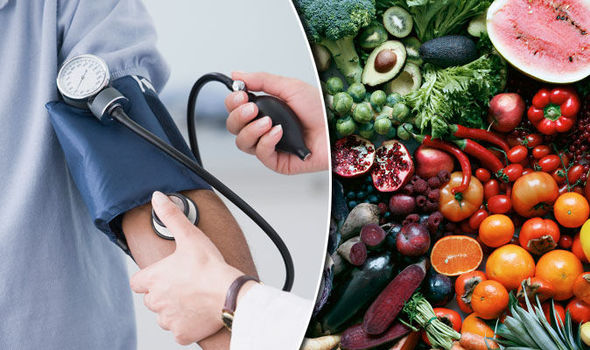Can Hypertension Be Controlled Without Medication?

Hypertension, also known as high blood pressure, is a prevalent chronic condition that affects millions of individuals worldwide. It is characterized by persistently elevated blood pressure levels, which can lead to serious health complications if left uncontrolled.
While medication is commonly prescribed to manage hypertension, there is increasing interest in non-pharmacological approaches to control blood pressure. This article aims to explore the question of whether hypertension can be controlled without medication.
By examining various lifestyle factors, such as diet, exercise, stress management, weight management, smoking and alcohol consumption, sleep patterns, and regular blood pressure monitoring, this article will provide an overview of the potential strategies for managing hypertension without relying solely on medication.
The objective, impersonal academic writing style employed throughout this article will ensure an unbiased analysis of the topic, presenting evidence-based information to inform readers about the potential non-pharmacological options for hypertension control.
Key Takeaways
- Consulting a healthcare professional is important for managing hypertension.
- Lifestyle modifications, such as exercise, diet changes, stress management, and weight loss, can help control blood pressure without medication.
- Alternative treatments can be explored with the guidance of healthcare professionals.
- Regular monitoring and check-ups are necessary to evaluate the effectiveness of the treatment plan and make necessary adjustments.
Adopt a Healthy Diet
Adopting a healthy diet has been shown to be an effective strategy for managing hypertension without the need for medication. Healthy eating habits play a crucial role in controlling blood pressure levels and reducing the risk of cardiovascular diseases.
A diet rich in fruits, vegetables, whole grains, and low-fat dairy products, while limiting sodium, saturated fats, and cholesterol, can have a positive impact on blood pressure. These dietary choices are known to promote weight loss, lower blood pressure, and improve overall cardiovascular health.
Furthermore, incorporating natural remedies, such as garlic, hibiscus tea, and omega-3 fatty acids found in fish, can provide additional benefits in managing hypertension.
By adopting a healthy diet and incorporating natural remedies, individuals can effectively control their blood pressure levels, reducing the need for medication.
Engage in Regular Exercise
Engaging in regular exercise has been shown to have a significant impact on managing high blood pressure. Exercise benefits individuals with hypertension by reducing both systolic and diastolic blood pressure. Regular physical activity promotes cardiovascular health, improves blood flow, and enhances the efficiency of the heart.
It also helps in maintaining a healthy body weight, which is crucial in managing hypertension. Exercise can be an effective alternative therapy for those who prefer non-pharmacological approaches or have contraindications to medication. Various forms of exercise, such as aerobic exercises, resistance training, and flexibility exercises, have been found to be beneficial in lowering blood pressure.
However, it is important to consult with a healthcare professional before starting an exercise regimen, especially for individuals with severe hypertension or other medical conditions. Overall, engaging in regular exercise can be a valuable strategy in controlling hypertension and improving overall cardiovascular health.
Manage Stress Levels
To effectively manage stress levels, individuals can explore various stress-reducing techniques and strategies. Stress management techniques play a crucial role in controlling hypertension without medication. One effective approach is relaxation exercises, which promote a sense of calm and reduce the body’s stress response. These exercises can include deep breathing exercises, progressive muscle relaxation, guided imagery, and meditation. Engaging in regular relaxation exercises has been shown to lower blood pressure and reduce the risk of hypertension-related complications. Additionally, mindfulness-based stress reduction programs have also been found to be beneficial in managing stress and improving overall well-being. By incorporating these stress management techniques into their daily routine, individuals can effectively control their hypertension and reduce their reliance on medication.
| Stress Management Techniques | Benefits |
|---|---|
| Deep breathing exercises | Promotes relaxation, reduces stress |
| Progressive muscle relaxation | Relieves muscle tension, induces calm |
| Guided imagery | Enhances relaxation, decreases anxiety |
| Meditation | Reduces stress, improves mental clarity |
| Mindfulness-based stress reduction programs | Enhances well-being, manages stress |
Maintain a Healthy Weight
Maintaining a healthy weight is crucial for managing stress levels and promoting overall well-being. Obesity is closely linked to hypertension, and losing weight can significantly reduce blood pressure levels. Natural remedies and alternative therapies can be effective in achieving and maintaining a healthy weight.
To grab the attention of the audience, here are three key strategies:
- Balanced Diet: Consuming a variety of nutrient-rich foods, such as fruits, vegetables, whole grains, lean proteins, and healthy fats, can help control weight and lower blood pressure.
- Regular Physical Activity: Engaging in regular exercise, such as brisk walking, swimming, or cycling, can aid in weight loss and improve cardiovascular health.
- Mindful Eating: Practicing mindful eating techniques, such as paying attention to hunger and fullness cues, can prevent overeating and promote weight management.
Incorporating these strategies into daily routines can contribute to maintaining a healthy weight and potentially controlling hypertension without the use of medication.
Limit Smoking and Alcohol Consumption
Smoking and excessive alcohol consumption can have detrimental effects on overall health and may contribute to increased stress levels and weight gain. In the context of hypertension control, limiting smoking and alcohol consumption is crucial. Smoking cessation is strongly recommended as it has been shown to decrease blood pressure and improve cardiovascular health. Additionally, reducing alcohol intake to moderate levels can help prevent hypertension and its complications. Moderate drinking is defined as up to one drink per day for women and up to two drinks per day for men. To emphasize the importance of these lifestyle changes, the following table provides a comparison of the effects of smoking and excessive alcohol consumption on hypertension control.
| Smoking | Excessive Alcohol Consumption | |
|---|---|---|
| Blood Pressure | Increases | Increases |
| Stress Levels | Increases | Increases |
| Weight Gain | Increases | Increases |
By understanding the negative impact of smoking and excessive alcohol consumption on hypertension control, individuals can make informed decisions to limit these behaviors and improve their overall health.
Monitor Blood Pressure Regularly
Regular monitoring of blood pressure is essential for individuals to assess their cardiovascular health and make informed decisions regarding their overall well-being. It allows them to track any changes in their blood pressure levels and take appropriate actions to control hypertension.
Monitoring blood pressure regularly also helps individuals evaluate the effectiveness of natural remedies and alternative therapies for hypertension. By keeping a close eye on their blood pressure readings, individuals can determine if these remedies are having a positive impact on their condition.
Additionally, monitoring blood pressure regularly enables individuals to identify any potential complications or risks associated with their hypertension, allowing them to make timely adjustments to their treatment plan if necessary.
Overall, regular blood pressure monitoring plays a crucial role in controlling hypertension without medication by providing valuable insights into one’s cardiovascular health and the effectiveness of alternative treatments.
Get Enough Sleep
Sufficient sleep is crucial for individuals to optimize their cardiovascular health and make informed decisions regarding their overall well-being, evoking a sense of calmness and rejuvenation. Improving sleep quality can be beneficial in controlling hypertension without medication.
Establishing a bedtime routine can help regulate sleep patterns and promote better sleep. Here are five ways to improve sleep quality:
- Create a consistent sleep schedule by going to bed and waking up at the same time every day.
- Make your sleeping environment comfortable, dark, and quiet.
- Avoid stimulating activities before bed, such as watching TV or using electronic devices.
- Engage in relaxation techniques, such as deep breathing or meditation, to reduce stress and promote relaxation.
- Limit caffeine and alcohol intake, as they can interfere with sleep quality.
By prioritizing sufficient and quality sleep, individuals may positively impact their blood pressure levels and overall cardiovascular health.
Consult with a Healthcare Professional
Consulting with a healthcare professional can provide valuable guidance and support in managing cardiovascular health and making informed decisions regarding overall well-being.
When it comes to hypertension, healthcare professionals can offer advice on alternative treatments and natural remedies that may help control blood pressure without medication. These options may include lifestyle modifications such as exercise, diet changes, stress management techniques, and weight loss.
Additionally, healthcare professionals can monitor blood pressure levels, provide education on the risks and complications of hypertension, and offer regular check-ups to ensure that the chosen treatment plan is effective.
By seeking the expertise of a healthcare professional, individuals with hypertension can access a wide range of resources and personalized recommendations to help manage their condition and potentially reduce the need for medication.
Frequently Asked Questions
What are some specific dietary changes that can help control hypertension?
Specific dietary changes, such as reducing sodium intake, increasing potassium-rich foods, adopting the DASH diet, limiting alcohol consumption, and maintaining a healthy weight, can help control hypertension. Lifestyle modifications, such as regular exercise and stress management, are also crucial.
How often should I engage in exercise to effectively manage hypertension?
To effectively manage hypertension, it is recommended to engage in regular exercise at least 150 minutes per week, along with other lifestyle modifications such as maintaining a healthy diet and weight.
Are there any specific stress management techniques that are particularly effective for controlling hypertension?
Stress relief techniques, including mindfulness practices, have shown promise in managing hypertension. These techniques help individuals relax, reduce anxiety, and improve overall well-being, which can have a positive impact on blood pressure levels.
What is considered a healthy weight range for someone with hypertension?
A healthy weight range for someone with hypertension is typically considered to be a body mass index (BMI) between 18.5 and 24.9. Maintaining a healthy weight can contribute to blood pressure control and overall cardiovascular health.
How does smoking and alcohol consumption specifically affect blood pressure levels?
Smoking and alcohol consumption have detrimental effects on blood pressure levels. Smoking causes blood vessels to constrict, leading to increased blood pressure. Alcohol consumption can raise blood pressure levels, particularly in excessive amounts.








